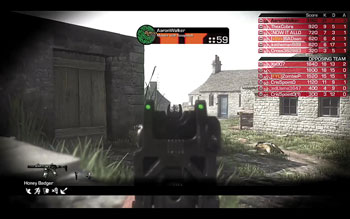By Aaron Walker

From a non-gamer perspective the most popular opinion on the matter is that playing violent games directly attributes to being violent in real life. For a lot of people this is the explanation that makes the most amount of sense, and reasonably so. The logic being: since the player enjoys doing violent things in certain games for fun, they will either become a violent person or try to emulate the “fun” they were having in the game but in real life.
While in theory this looks spot, it’s anything but. Those protesting certain games and arguing for less violence in video games are predominately ones who are concerned for the future of loved ones and the public. This is a noble cause, but ultimately their efforts are wasted on something they are unfortunately misinformed about.
As a gamer that spends a good amount of their everyday free time playing video games, I believe that what it comes down to are a few main things, two being: the fact that the violence in a game is simply fiction and that these games are a form of art.
Not a sport where I get to go on a killing spree to win the game. Rather a sport where I have to use what strategies I know about the game and which attachments to use for certain weapons that only work for particular maps and so on.
Another example is the overly gory play style in the Gears of War franchise which includes the abilities to chainsaw enemies, shoot body parts off, and use downed enemies for protection as “meatshields”.
The way these games were designed is very graphic they do serve a purpose; it gives the game a feel of its own and it makes you operate the mechanics differently from other games.
Everything can be broken down into game mechanics that change the way you play a specific game. The chainsaw is an instant kill if you get it right, one free point basically, but it also leaves you vulnerable and it takes a long time to complete.
The people playing these games see the mechanics as well as the gore; there’s no denying that (although in Gears of War you can turn off the gore). But drawing such conclusions as video games causing players to be violent just seems silly.
Lastly, I’ve personally met with developers and creators from such violent title franchises as Dead Island, Call of Duty, Gears of War, and Sniper Elite.
Not only was the focus of their presentations not violence fueled and focused on the killings, but it was actually a very insightful look at all of the hard work and dedication the artists and programmers must go through to get their piece of work out and produced. They mainly focused on new ways to play the game, additions to the features in-game, and fixing things players did not appreciate in previous versions.
To my understanding both the players and the creators know that violence in their games doesn’t make people more violent, games heavy in violence are merely a flavor of gaming in a sea of genres that most non-gamer individuals don’t step back to see.